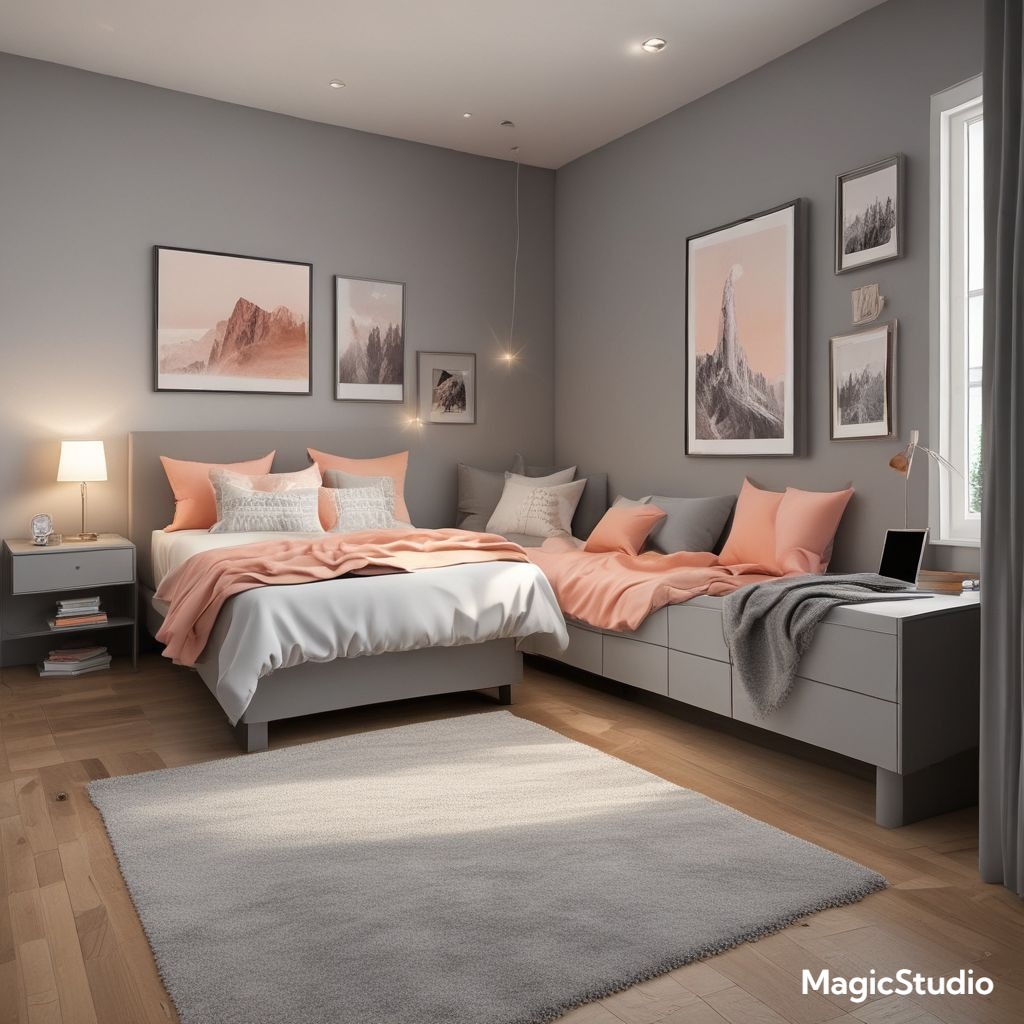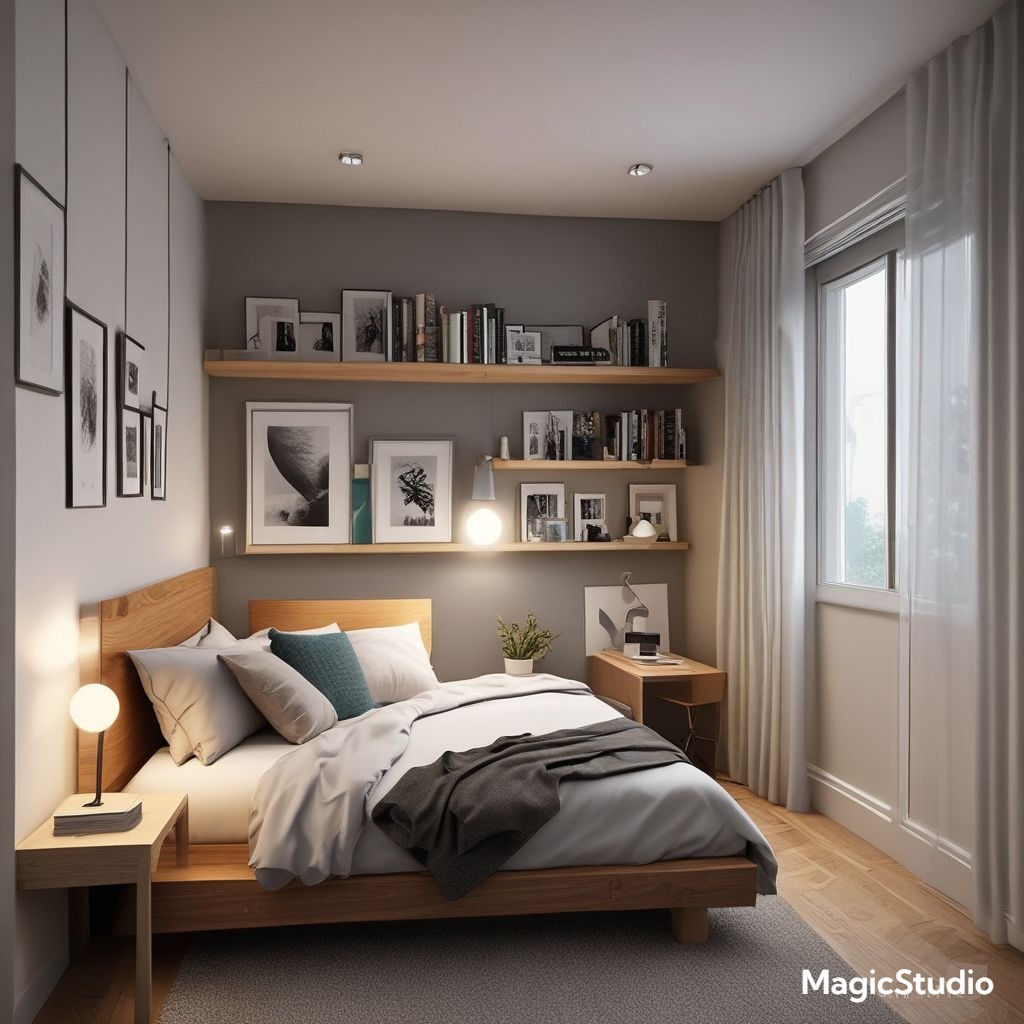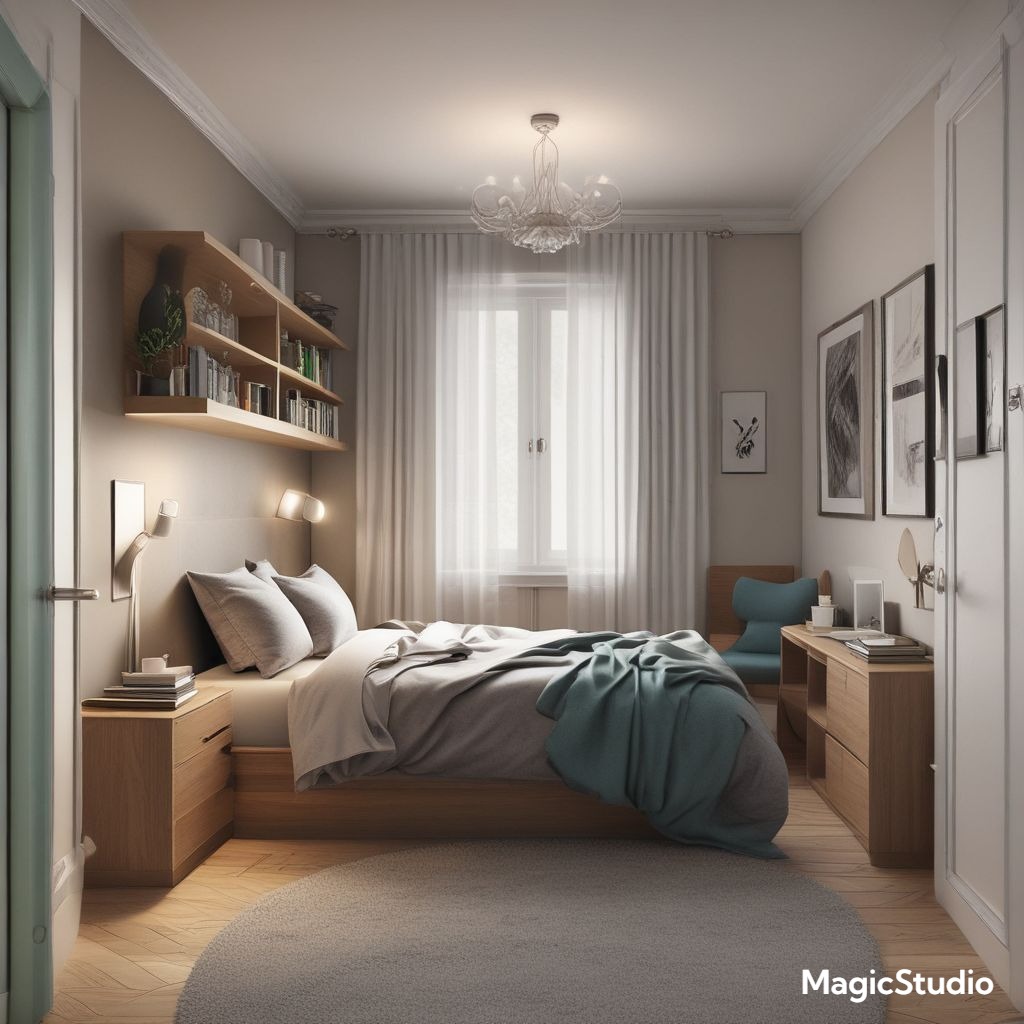
Introduction: Sharing a bedroom can be a challenge, especially when space is limited. However, with clever design and a focus on functionality and style, a small bedroom can easily become a haven for two children. This article explores 38 modern design ideas that cater to the needs and preferences of young ones, drawing inspiration from current trends in the US and EU. These ideas prioritize creating a harmonious and stimulating environment, balancing practicality with aesthetic appeal. Whether you’re aiming for a minimalist haven, a playful haven, or a sleek and modern space, there’s an idea here to spark your creativity and transform your children’s shared space.
Modern Minimalist with Pops of Teal
Modern minimalism is a popular choice for small bedrooms, as it emphasizes clean lines, neutral tones, and functionality. In this design, a soft, off-white or light grey palette forms the foundation, creating a sense of spaciousness. The key is to incorporate splashes of vibrant teal through accent pieces like throw pillows, blankets, and artwork. Teal is trending in both the US and EU for its calming yet invigorating energy. This color is believed to promote creativity and tranquility, making it ideal for a children’s bedroom. Consider a white or light wood furniture set with sleek, modern lines. A built-in storage solution like a loft bed with integrated shelving and desks can maximize space and provide ample storage. Adding a few playful, yet minimalist, decorative elements like geometric prints or abstract art in shades of teal will further enhance the modern aesthetic. This style works particularly well for older children and teenagers who prefer a clean and sophisticated look.
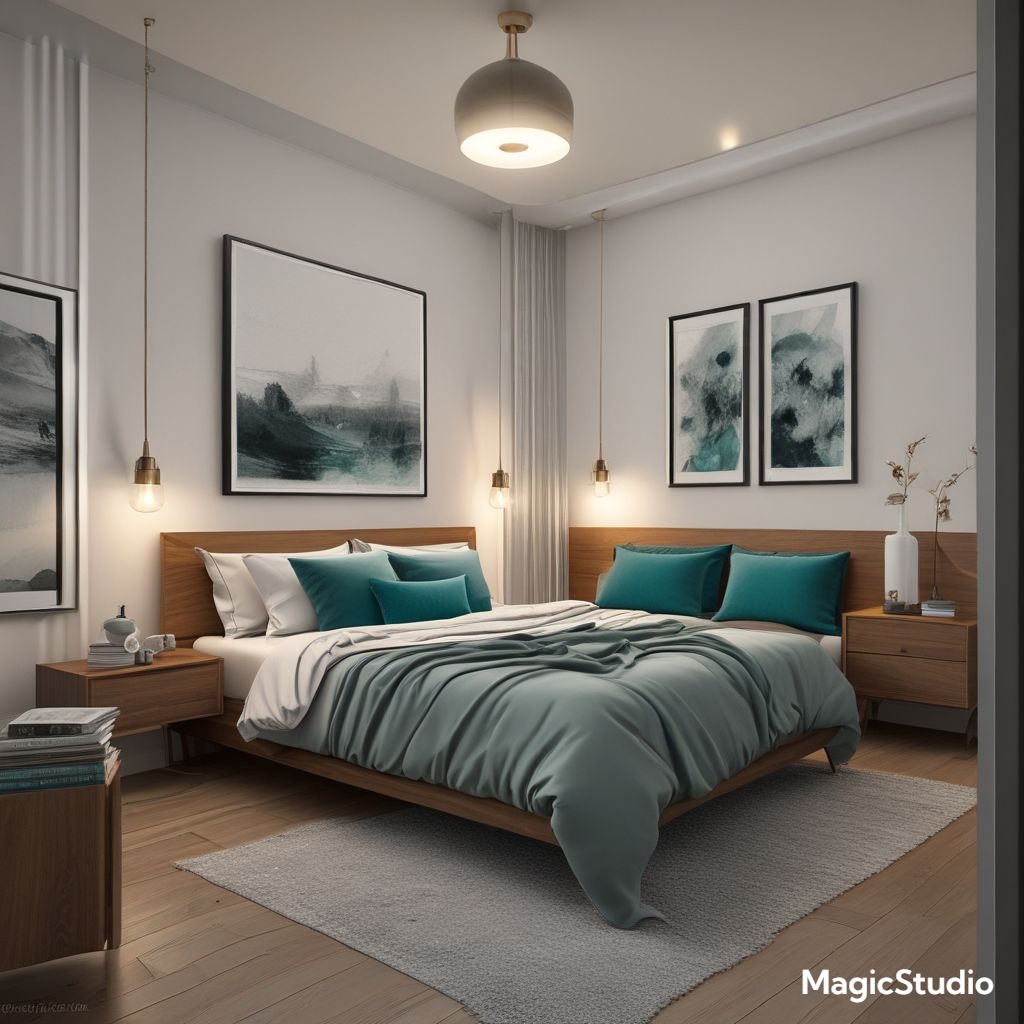
Soft Blush Pink and Grey Serenity
A harmonious combination of blush pink and grey creates a soothing and calming environment for children. This color scheme is particularly popular in the US and EU for its delicate aesthetic and ability to foster relaxation. Use light grey as the dominant color on the walls and for larger furniture pieces like wardrobes and desks. Introduce blush pink through soft furnishings like curtains, bedding, and rugs. This combination of colors is adaptable to various age groups, from toddlers to teens. Choose soft textures for bedding, such as cotton or linen, to create a cozy feel. Incorporate subtle patterns or textured wallpaper in light grey and blush pink to add visual interest without overwhelming the space. Consider adding a few pieces of brass or gold accents for a touch of elegance. This design is perfect for creating a peaceful atmosphere that encourages restful sleep and relaxation for children of all ages.
Bright Yellow and Navy Blue Contrast
This bold and energetic color combination is a great option for children who love bright and vibrant spaces. Navy blue provides a grounding base, while bright yellow injects a cheerful and playful atmosphere. This is a popular choice for younger children, especially in the US, as it stimulates creativity and enhances cognitive development. Paint the walls a soft navy blue and use yellow for accents, such as bedspreads, cushions, and storage boxes. Consider incorporating geometric patterns in yellow and navy to create a sense of playfulness and dynamism. Introduce natural elements like wooden toys and plants to balance the strong colors. A white or light wood furniture set helps to keep the space bright and airy. Consider incorporating fun, themed wall decals or artwork featuring favorite characters or animals. This combination provides a striking contrast that is both stimulating and stylish, making it a popular choice for young, energetic individuals.
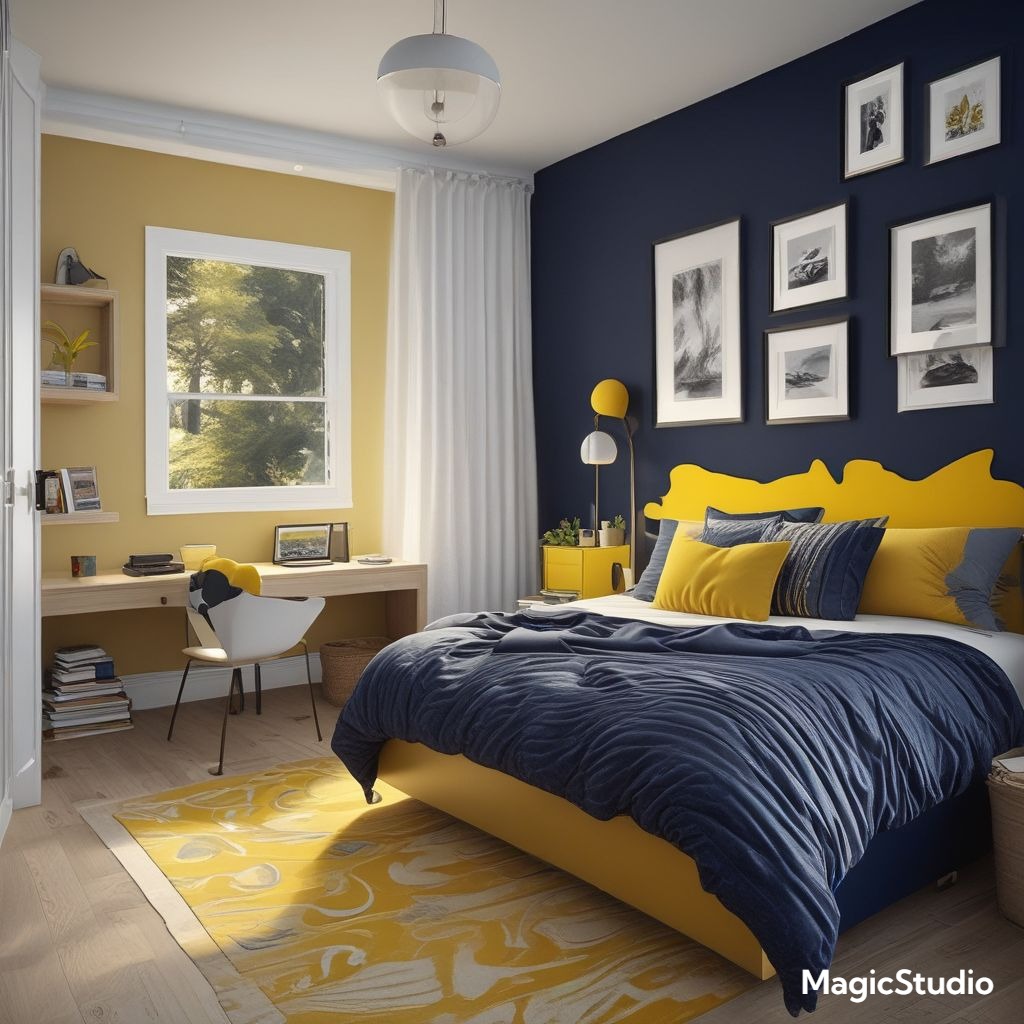
Coastal Blue and White Serenity
The coastal blue and white color scheme is trending in both the US and EU, evoking a sense of calm and tranquility. Inspired by the seaside, this design is perfect for creating a relaxing and peaceful environment for children. Use a soft, muted blue as the primary wall color and incorporate white through furniture, bedding, and accents. The combination of blue and white creates a sense of openness and airiness, making a small bedroom feel more spacious. Incorporate natural textures like woven baskets, seagrass rugs, and cotton bedding for a relaxed, beachy vibe. Introduce nautical-themed decorative elements like seashells, starfish, and rope accents. Add a few pops of coral or turquoise for a touch of color. A light wood furniture set with simple lines complements the coastal theme. This design is particularly appealing for children who enjoy the outdoors or have a fascination with marine life.
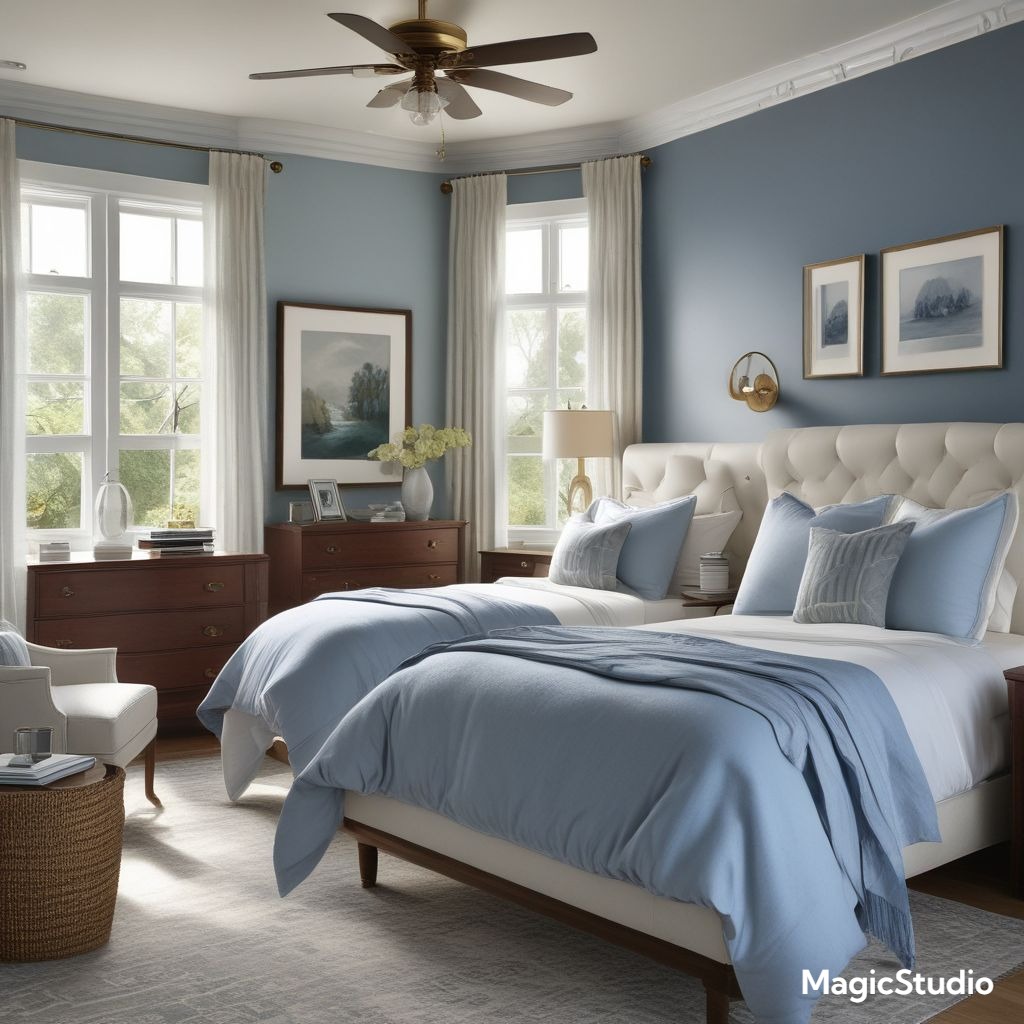
Emerald Green and Gold Luxury
Emerald green is a luxurious and sophisticated color that is increasingly popular in interior design. Combined with accents of gold, this color scheme creates a rich and opulent atmosphere in a children’s bedroom. Use emerald green as an accent color, perhaps on a feature wall or through curtains and bedding. Pair it with a neutral base, such as cream or off-white, for the walls and larger furniture pieces. Gold accents can be introduced through decorative elements, such as picture frames, lampshades, and handles. Consider incorporating velvet or textured fabrics in emerald green for a touch of luxury. Use a mix of materials, such as wood, metal, and glass, to create a layered and sophisticated look. This design can be adapted for a variety of age groups, from younger children to teenagers. It reflects a sense of elegance and sophistication, making it a trending choice in both the US and EU.
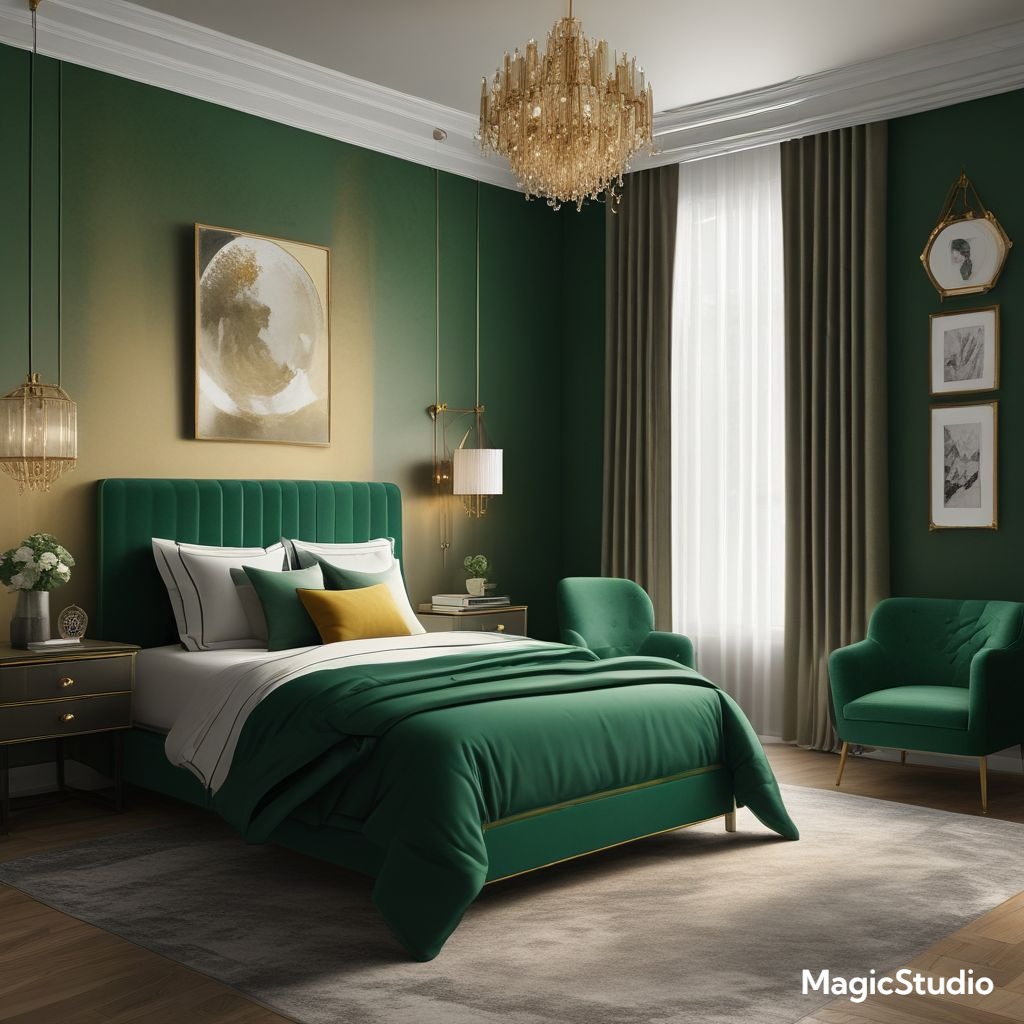
Pastel Rainbow with Wooden Accents
This fun and playful design combines the vibrant energy of a rainbow with the warmth of natural wood. Pastel shades of pink, blue, yellow, and green are used as accents, while a neutral base, such as white or cream, provides a sense of balance. This color scheme is especially popular with young children, particularly in the US, as it promotes imagination and creativity. Use pastel shades for bedding, cushions, and storage boxes. Introduce natural wood elements through furniture, such as a bed frame, desks, and shelving units. Consider a textured wallpaper with a subtle pastel pattern or a mural depicting a whimsical scene. This design is excellent for fostering a sense of playfulness and encouraging creative expression. The combination of soft pastels and natural wood creates a comforting and stimulating environment for young children.
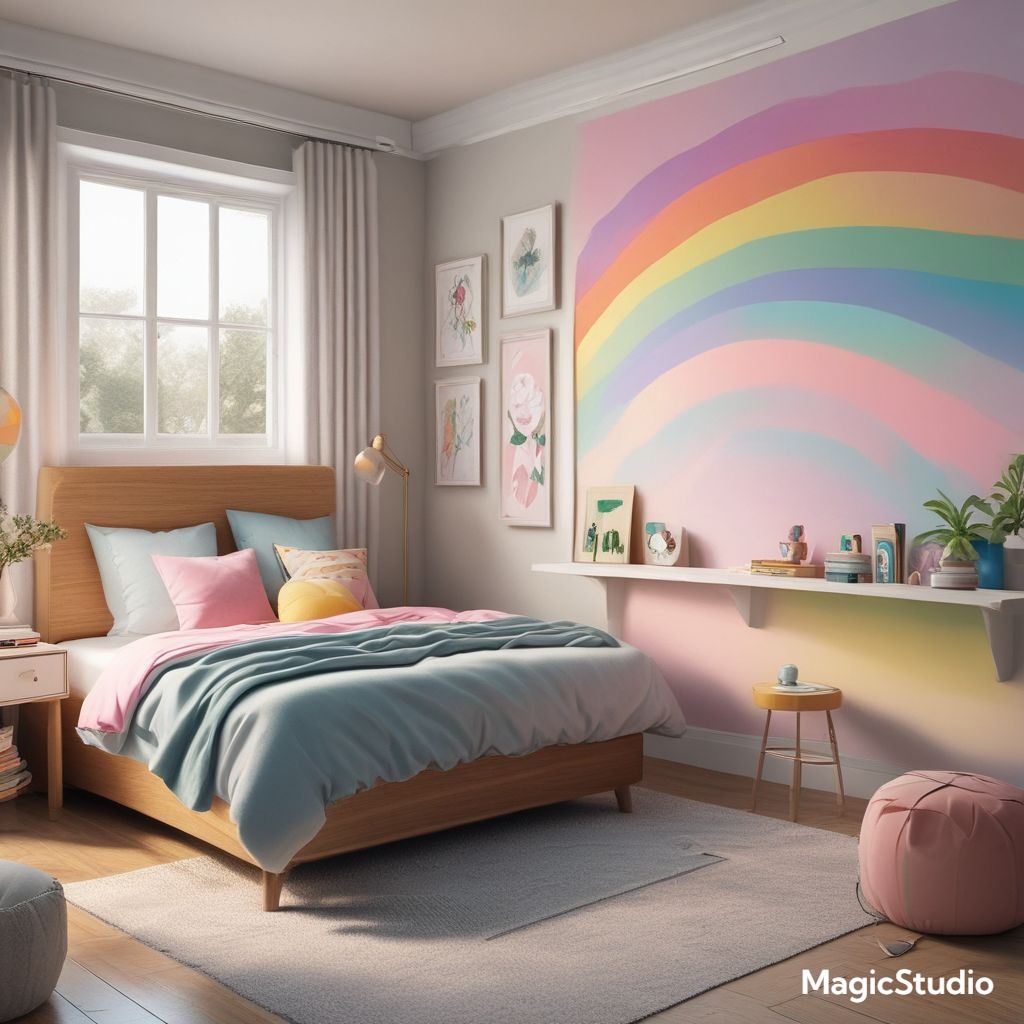
Grey and Mustard Yellow Modernity
This modern and sophisticated color scheme combines the neutral elegance of grey with the warm vibrancy of mustard yellow. Grey acts as a calming base, while mustard yellow provides a cheerful and energetic touch. This combination is trending in both the US and EU for its versatility and ability to create a sophisticated yet playful space. Use a light grey as the primary wall color and introduce mustard yellow through accents like cushions, rugs, and artwork. Consider incorporating geometric patterns or textures in mustard yellow to add visual interest. Choose a modern furniture set in light wood or white to complement the colour scheme. This design is suitable for older children and teenagers who appreciate a more mature and sophisticated aesthetic. The combination of grey and mustard yellow is a timeless choice that can be easily adapted to evolving styles and tastes.
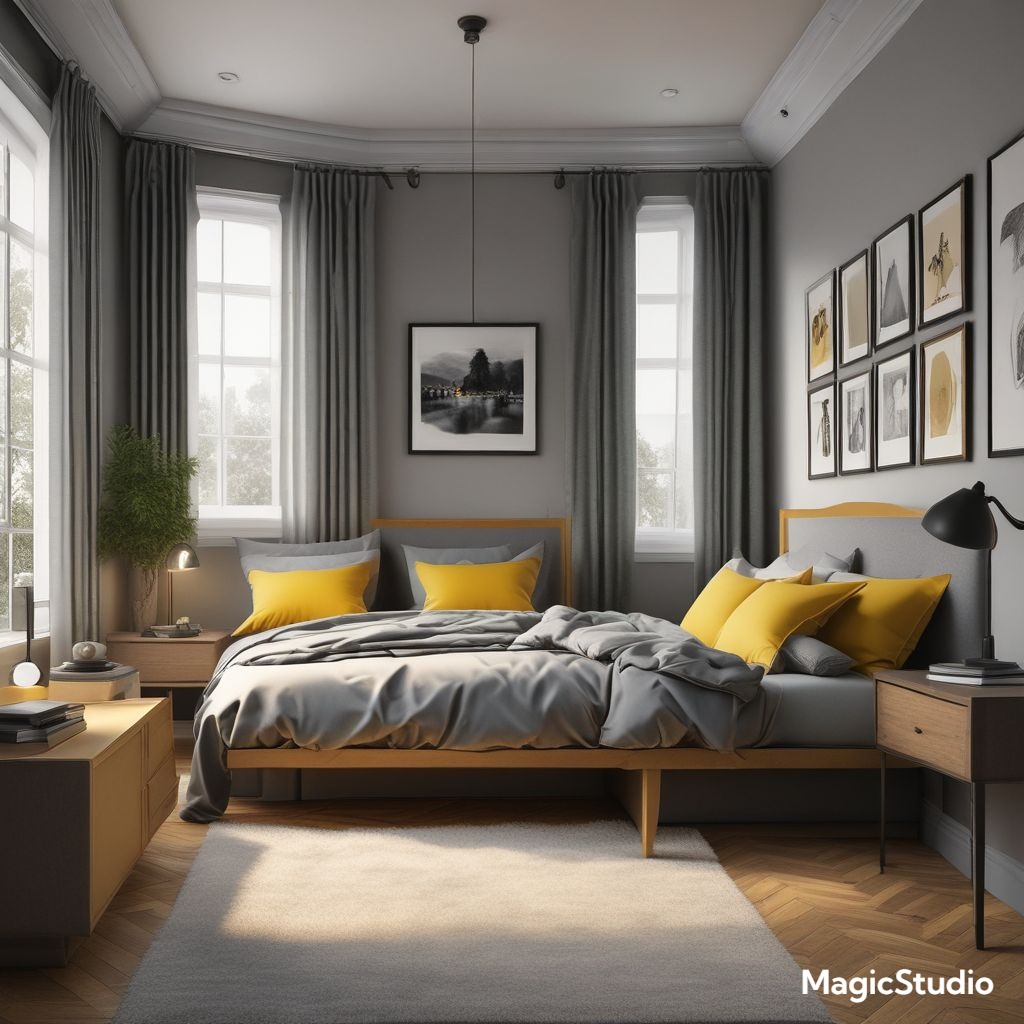
Navy Blue and Coral Pop
Navy blue and coral create a striking and energetic contrast in a small bedroom. Navy blue provides a sense of stability and calm, while coral adds a vibrant and uplifting touch. This color scheme is particularly popular in the US for its ability to create a bold and stylish environment. Use navy blue as the primary wall color and incorporate coral through accents like bedding, curtains, and decorative objects. Consider incorporating geometric patterns in coral and navy to add visual interest and movement. Introduce natural elements like plants and wooden furniture to soften the look and create a more balanced environment. This design is perfect for creating a stimulating and energetic space that is also visually appealing. The combination of navy blue and coral provides a dynamic and fresh feel, making it a great choice for children of all ages.
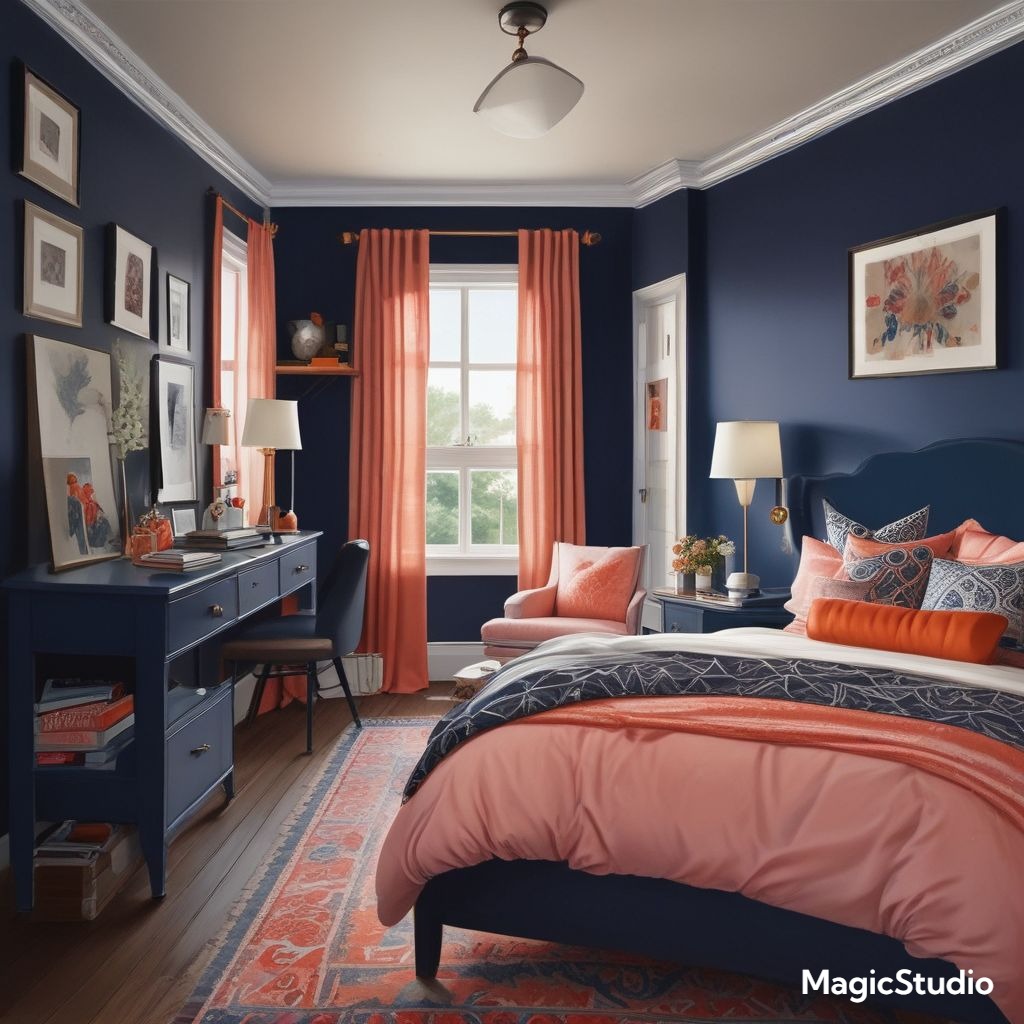
Monochrome with Bright Accents
Monochrome design schemes, utilizing various shades of a single color, are increasingly popular in modern interiors. For a children’s bedroom, consider using different shades of grey or blue as the primary colors. This creates a sense of calm and sophistication. To introduce a playful element, incorporate bright accent colors through cushions, artwork, and storage containers. This could be anything from vibrant pink or yellow to a bold orange or turquoise. This approach offers a sense of order and calmness while allowing for individual expression through the chosen accent colors. In the US and EU, this design is embraced for its ability to create a sleek and contemporary atmosphere. A minimalist furniture set in white or light wood complements this design beautifully. Monochrome is a great choice for older children and teenagers who prefer a more minimalist and sophisticated aesthetic.
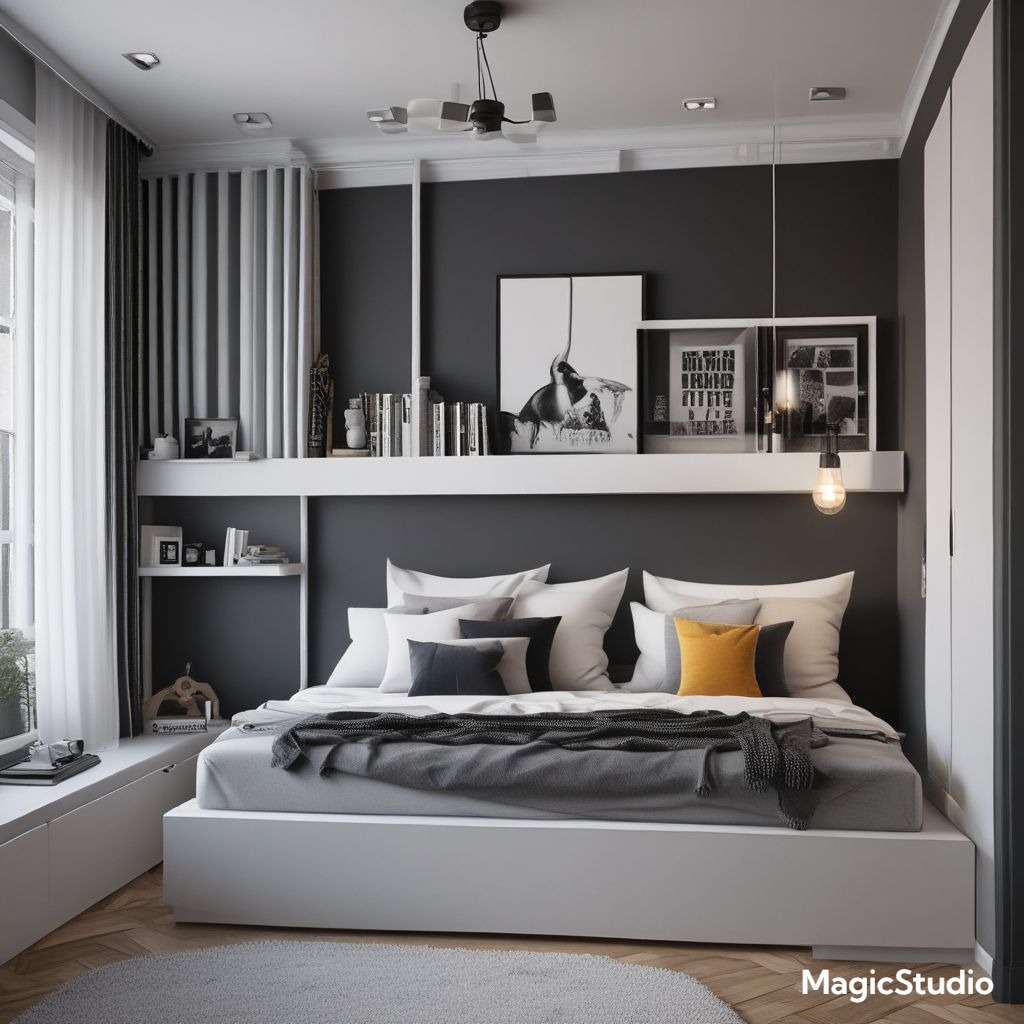
Dusty Rose and Teal Tranquility
Dusty rose and teal offer a unique and elegant color combination for a small bedroom. Dusty rose provides a soft and comforting backdrop, while teal adds a touch of vibrancy and coolness. This color palette is popular in the EU and is becoming increasingly popular in the US for its ability to create a tranquil and sophisticated space. Use dusty rose as the primary wall color and introduce teal through accent pieces, such as bedding, curtains, and artwork. Incorporate natural textures, such as woven baskets and cotton rugs, to create a sense of warmth and comfort. This color scheme fosters a calming and serene environment, making it a great choice for children who tend to be sensitive or easily overwhelmed. A light wood furniture set with simple, clean lines complements the dusty rose and teal beautifully. This combination fosters a peaceful and aesthetically pleasing space, making it an excellent choice for children of all ages.
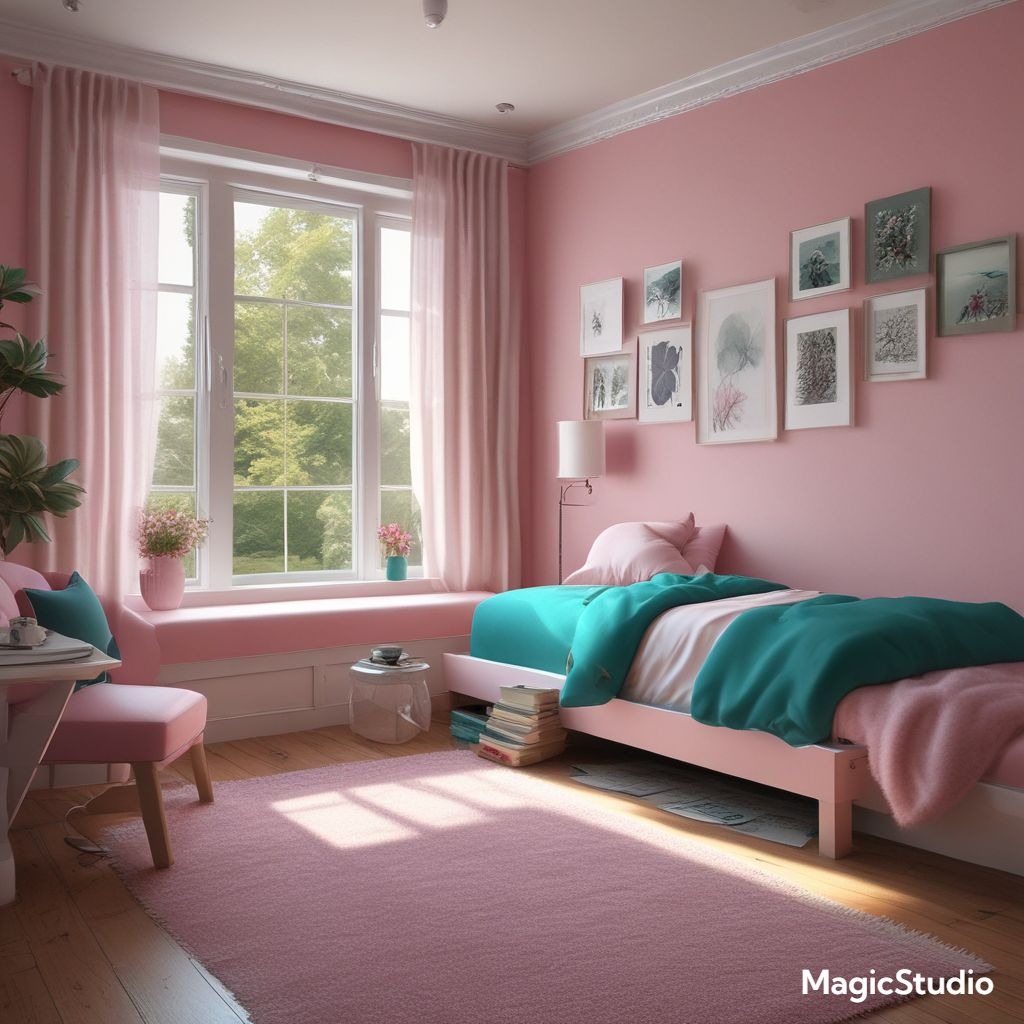
White and Natural Wood Simplicity
A simple yet elegant design, this combination prioritizes natural materials and a clean aesthetic. White walls create a sense of openness and spaciousness in a small bedroom. Natural wood elements, incorporated through furniture and accessories, add warmth and texture. This combination is favored in both the US and EU for its versatility and ability to create a calm and airy environment. Use white as the primary color for the walls and furniture, and introduce natural wood accents through bed frames, desks, and shelving units. Consider a jute or sisal rug for a natural touch. This design is ideal for fostering a sense of calm and serenity in a shared space. Incorporate playful elements through colorful artwork, soft furnishings, or decorative accents in natural materials. This minimalist approach is suitable for children of all ages, especially those who appreciate a clean and uncluttered aesthetic.
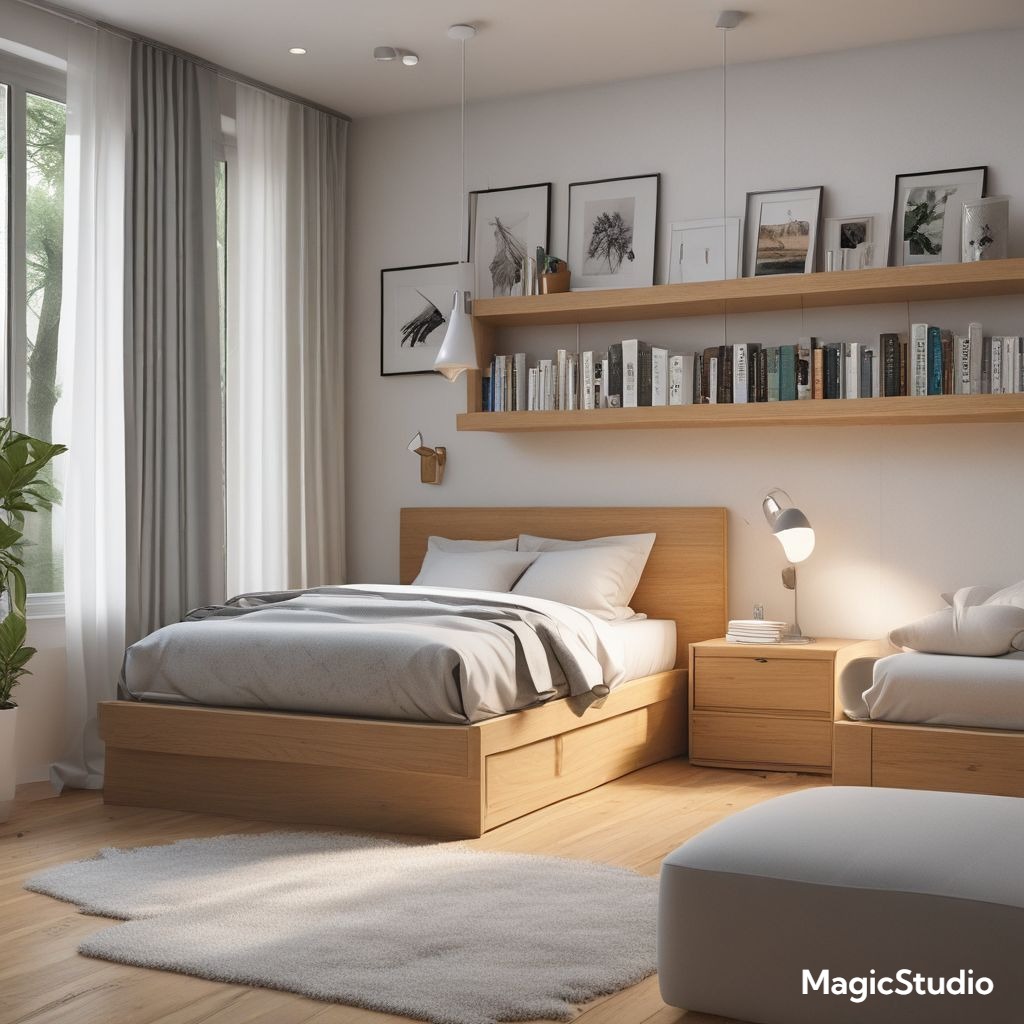
Terracotta and Olive Green Earthy Tones
This earthy and natural color scheme creates a grounding and calming atmosphere in a small bedroom. Terracotta, a warm reddish-brown, brings a sense of warmth and comfort. Olive green, a muted green with a yellowish undertone, provides a grounding and calming contrast. This combination is gaining popularity in the US and EU for its connection to nature and its ability to create a tranquil and inviting space. Use terracotta as an accent color on walls or textiles. Olive green can be used as the primary wall color or incorporated through furniture and soft furnishings. Consider adding natural elements like plants and woven baskets to enhance the earthy feel. This combination fosters a sense of stability and tranquility, making it a great option for children who benefit from a calm and grounding environment. A light wood furniture set with a natural finish complements the warm tones of this color scheme.
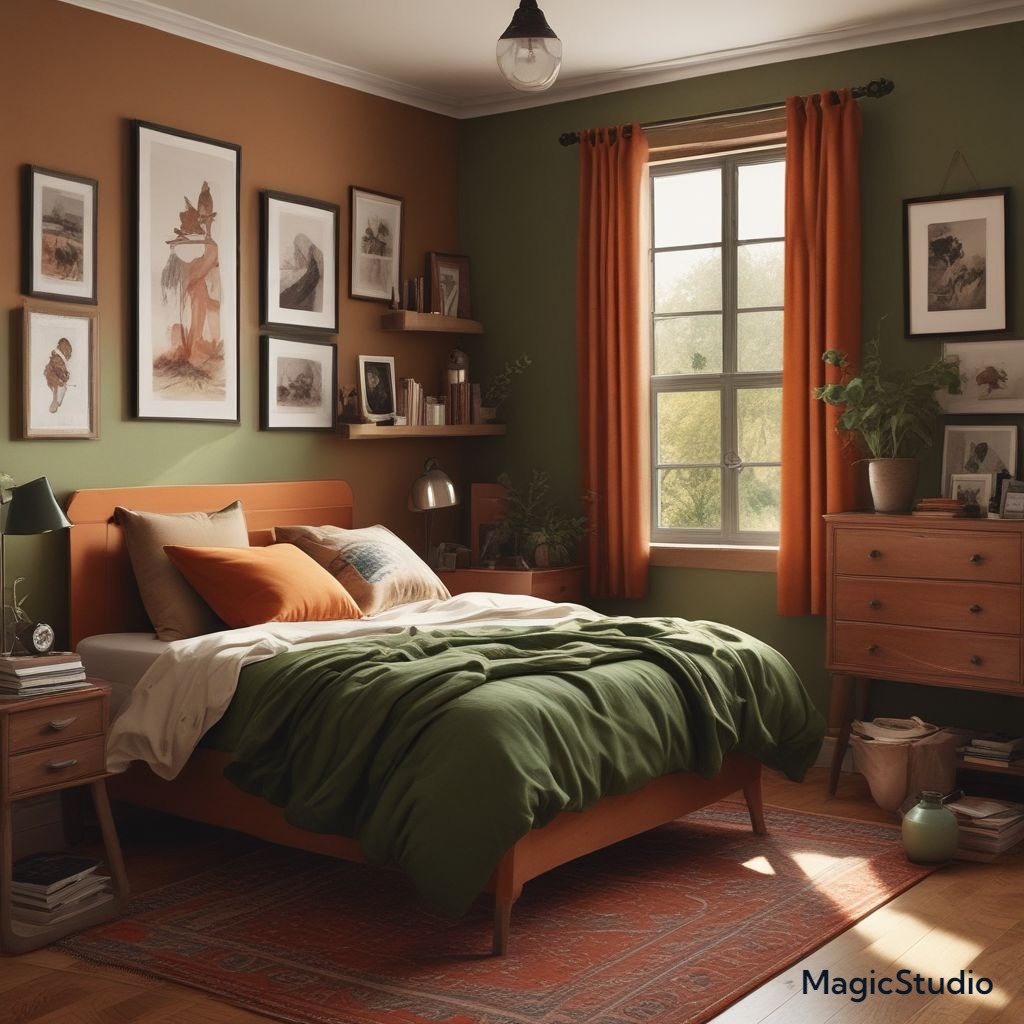
Warm Grey and Peach Harmony
Warm grey and peach create a gentle and inviting atmosphere in a small bedroom. Warm grey, with subtle brown or beige undertones, provides a neutral and calming base. Peach, a soft, delicate shade of orange, adds a touch of warmth and vibrancy. This color scheme is increasingly popular in the US and EU for its ability to create a relaxing and sophisticated space. Use warm grey as the primary wall color and introduce peach through accents like bedding, curtains, and artwork. Consider incorporating geometric patterns or textures in peach to add visual interest. Introduce natural elements like plants and woven baskets to soften the look and create a more balanced environment. This combination promotes a calm and peaceful atmosphere, making it ideal for children who need a space to unwind and relax. A white or light wood furniture set complements the warm and inviting tones of this color scheme.
